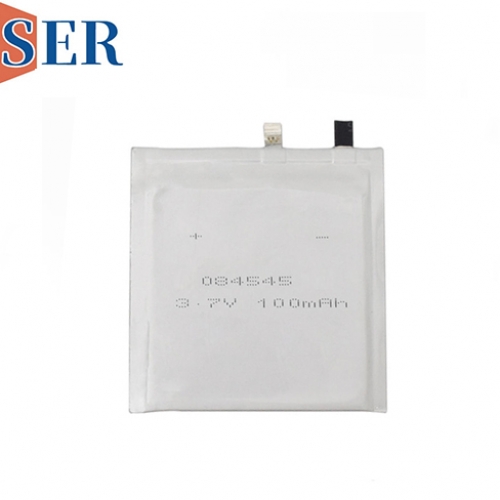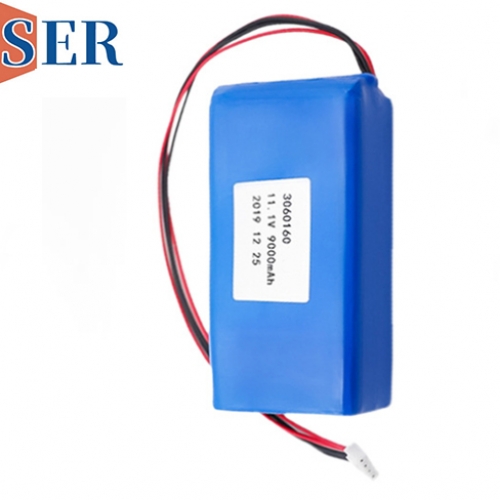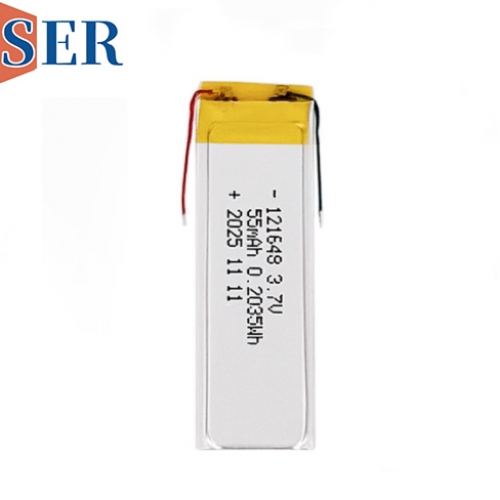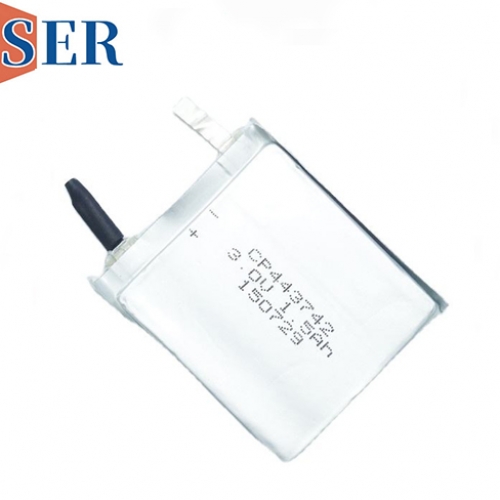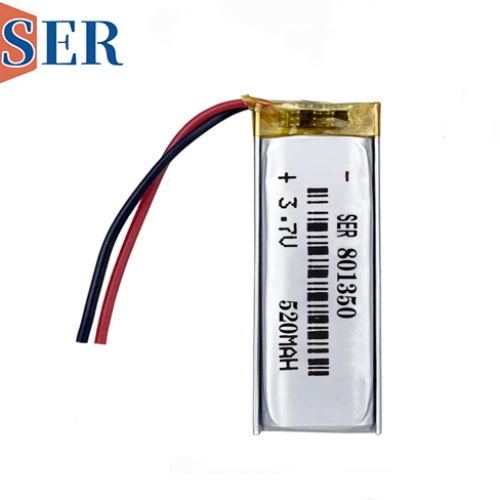3.0V Pouch Li-MnO2 Ultrathin Battery Cells
3.0V Pouch Li-MnO2 Ultrathin Battery Cells: Revolutionizing RFID Tags and Beyond
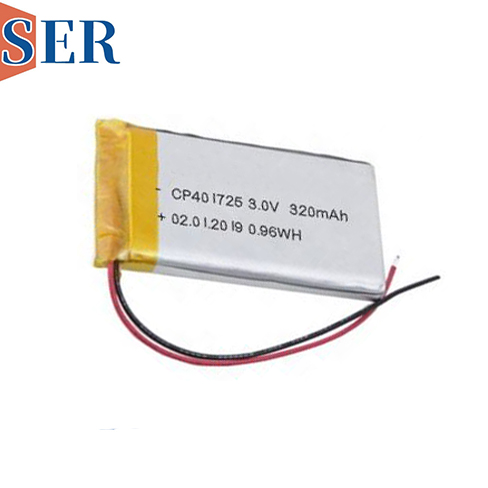
In the rapidly evolving world of battery technology, innovations continue to push the boundaries of what's possible. Among these advancements, 3.0V pouch Li-MnO2 ultrathin battery cells have emerged as a game-changer, particularly in the realm of RFID (Radio Frequency Identification) tags. These batteries offer a multitude of benefits that make them ideal for a wide range of applications, from inventory management to smart packaging. In this article, we will delve into the features, advantages, and potential applications of 3.0V pouch Li-MnO2 ultrathin battery cells, highlighting their superior energy density, wide operating temperature range, and compliance with various safety standards.
Introduction to 3.0V Pouch Li-MnO2 Ultrathin Battery Cells
3.0V pouch Li-MnO2 ultrathin battery cells represent a significant leap forward in battery technology. Unlike traditional batteries, these cells are designed with a flexible pouch form factor, allowing for ultra-thin profiles that are perfect for integrating into compact devices. The chemistry behind these batteries involves lithium (Li) as the anode and manganese dioxide (MnO2) as the cathode, with an electrolyte solution facilitating the transfer of ions between the two electrodes. This combination results in a battery that is not only lightweight but also highly efficient in terms of energy storage and delivery.
Key Features and Advantages
High Energy Density
One of the most standout features of 3.0V pouch Li-MnO2 ultrathin battery cells is their high energy density. Energy density refers to the amount of energy stored per unit volume or mass of a battery. In the case of these batteries, their energy density is approximately 2.5 times higher than that of rechargeable lithium-polymer (LiPo) cells. This means that they can store more energy in a smaller space, making them ideal for devices where space is at a premium.
The high energy density of 3.0V pouch Li-MnO2 batteries translates into several practical benefits. For instance, they can power RFID tags for longer periods without the need for frequent replacement. This is particularly important in supply chain management, where RFID tags are used to track inventory in real-time. With higher energy density, these tags can operate reliably for extended durations, reducing maintenance costs and improving overall efficiency.
High Single-Cell Voltage
Another notable feature of 3.0V pouch Li-MnO2 batteries is their high single-cell voltage. Unlike some other battery chemistries that require multiple cells to achieve a desired voltage level, these batteries operate at a nominal voltage of 3.0V per cell. This simplifies the design of electronic devices that use them, as fewer cells are needed to power the device.
The high single-cell voltage of these batteries also contributes to their efficiency. Higher voltage means that more power can be delivered to the load with less energy loss during transmission. This is particularly beneficial in RFID tags, where energy conservation is crucial due to the limited battery capacity. By minimizing energy loss, 3.0V pouch Li-MnO2 batteries ensure that RFID tags can communicate with readers more effectively, even over longer distances.
Lightweight
The lightweight nature of 3.0V pouch Li-MnO2 batteries is another significant advantage. Unlike traditional batteries that use heavy metals and other materials, these batteries are constructed using lightweight materials such as aluminum foil and plastic films. This results in a battery that is significantly lighter than its counterparts, making it easier to integrate into devices without adding excessive weight.
The lightweight design of these batteries is particularly beneficial in applications where weight is a critical factor. For example, in aerospace and aviation, every gram counts when it comes to fuel efficiency. By using lightweight 3.0V pouch Li-MnO2 batteries, manufacturers can reduce the overall weight of their products, leading to improved performance and reduced operational costs.
Wide Operating Temperature Range
3.0V pouch Li-MnO2 batteries also boast a wide operating temperature range, spanning from -20°C to 65°C. This makes them suitable for use in a variety of environments, from cold storage facilities to hot desert conditions. Their ability to operate reliably over such a wide temperature range sets them apart from other battery chemistries that may struggle in extreme conditions.
The wide operating temperature range of these batteries is particularly important in RFID applications. RFID tags are often deployed in environments where temperature fluctuations are common, such as outdoor warehouses or refrigerated storage areas. With 3.0V pouch Li-MnO2 batteries, RFID tags can continue to operate effectively regardless of the ambient temperature, ensuring that inventory data is always accurate and up-to-date.
Low Self-Discharge Rate
Another key feature of 3.0V pouch Li-MnO2 batteries is their low self-discharge rate. Self-discharge refers to the loss of charge that occurs within a battery when it is not in use. Traditional batteries, such as nickel-cadmium (NiCd) or nickel-metal hydride (NiMH), tend to have high self-discharge rates, meaning that they lose charge over time even when not connected to a load.
In contrast, 3.0V pouch Li-MnO2 batteries have a low self-discharge rate of approximately 2% per year. This means that they can retain their charge for extended periods, making them ideal for applications where long-term storage is required. For instance, in smart packaging, RFID tags with 3.0V pouch Li-MnO2 batteries can be embedded into products and stored for months or even years without losing significant charge. When the product is ready for sale, the RFID tag can be activated, and it will continue to operate reliably until the battery is depleted.
Flexible Shape Design
The flexible pouch form factor of 3.0V pouch Li-MnO2 batteries allows for significant design flexibility. Unlike rigid battery cases, these pouches can be molded into various shapes and sizes to fit the specific needs of the application. This makes them highly versatile and adaptable to a wide range of devices and form factors.
The flexible shape design of these batteries is particularly beneficial in RFID applications where tags may need to conform to irregular surfaces. For instance, in retail environments, RFID tags may need to be attached to clothing items or other products with curved or uneven surfaces. With 3.0V pouch Li-MnO2 batteries, RFID tag manufacturers can design tags that seamlessly integrate into these products, ensuring that they are both discreet and effective.
Compliance with Safety Standards
In addition to their technical features and advantages, 3.0V pouch Li-MnO2 batteries also comply with various safety standards. These include UL (Underwriters Laboratories), UN38.3 (United Nations recommendations on the transport of dangerous goods), and ROHS (Restriction of Hazardous Substances). Compliance with these standards ensures that these batteries are safe for use in a wide range of applications and can be transported and disposed of responsibly.
UL Compliance
UL is a global safety science company that tests and certifies products to ensure that they meet specific safety standards. Compliance with UL standards is crucial in applications where safety is a paramount concern, such as in electronic devices that are used in hazardous environments or by consumers.
3.0V pouch Li-MnO2 batteries have been tested and certified by UL to meet specific safety criteria. This includes tests for electrical safety, thermal stability, and mechanical integrity. By complying with UL standards, these batteries can be used with confidence in a wide range of applications, knowing that they have been rigorously tested for safety.
UN38.3 Compliance
UN38.3 is a set of recommendations developed by the United Nations for the safe transport of lithium batteries. These recommendations outline specific tests and procedures that batteries must undergo to ensure that they are safe for transport by air, sea, or land.
3.0V pouch Li-MnO2 batteries comply with UN38.3 standards, meaning that they have undergone rigorous testing to ensure their safety during transport. This includes tests for short circuit, overcharge, temperature abuse, and other potential hazards. Compliance with UN38.3 standards ensures that these batteries can be transported safely and legally, making them suitable for use in international applications.
ROHS Compliance
ROHS is a directive that restricts the use of certain hazardous substances in electrical and electronic equipment. These substances include lead, mercury, cadmium, hexavalent chromium, polybrominated biphenyls (PBBs), and polybrominated diphenyl ethers (PBDEs). Compliance with ROHS standards is crucial in applications where environmental sustainability is a concern.
3.0V pouch Li-MnO2 batteries comply with ROHS standards, meaning that they do not contain any of the restricted substances. This makes them suitable for use in applications where environmental impact is a critical factor, such as in consumer electronics or medical devices. By complying with ROHS standards, these batteries contribute to reducing the environmental footprint of the products in which they are used.
Applications of 3.0V Pouch Li-MnO2 Ultrathin Battery Cells
The unique features and advantages of 3.0V pouch Li-MnO2 ultrathin battery cells make them suitable for a wide range of applications. Here are some of the most notable:
RFID Tags
As mentioned earlier, 3.0V pouch Li-MnO2 batteries are ideal for powering RFID tags. Their high energy density, low self-discharge rate, and wide operating temperature range make them perfect for tracking inventory in real-time, even in challenging environments.
Incorporated in 2004, SER GROUP LIMITED has been playing a leading role among battery manufacturers, focusing on LiSOCL2 battery,Ultra thin battery,3.0V lithium battery,Lipo battery,LiFePO4 batteries and High temperature battery, Our goal is to provide one-stop solution to our clients. Our Products are now widely recognized as reliable products under the brand name SER, so much so that they have been adopted by our satisfied customers into their various devices and equipments.
Working closely with global companies, we use advanced technology, to build your battery, with the best manufacturing methods, materials, and semiconductors. Our large R&D department, consisting of fifty highly experienced team members, are relentlessly pushing the boundaries of battery design. With the high demand of the quality, thousands of our batteries are UL listed,IEC62133, CE, UN38.3 certified, and Rosh, Reach complied.

